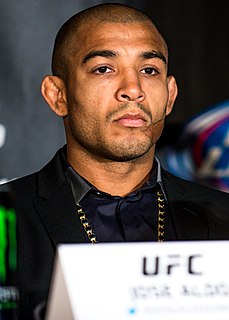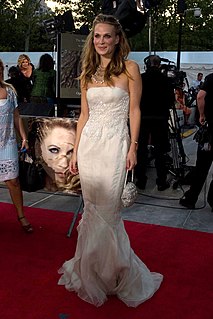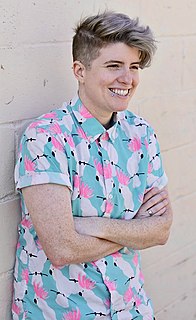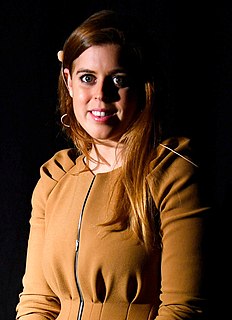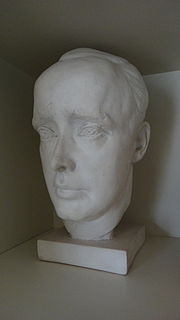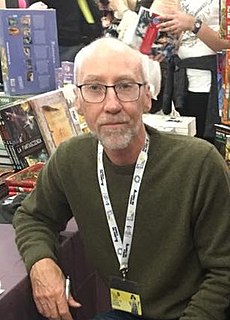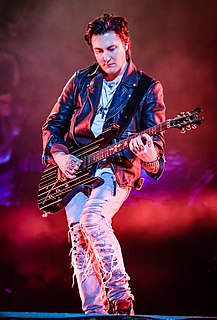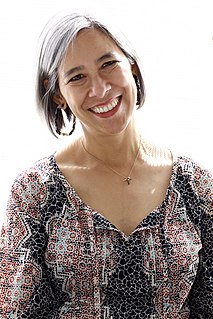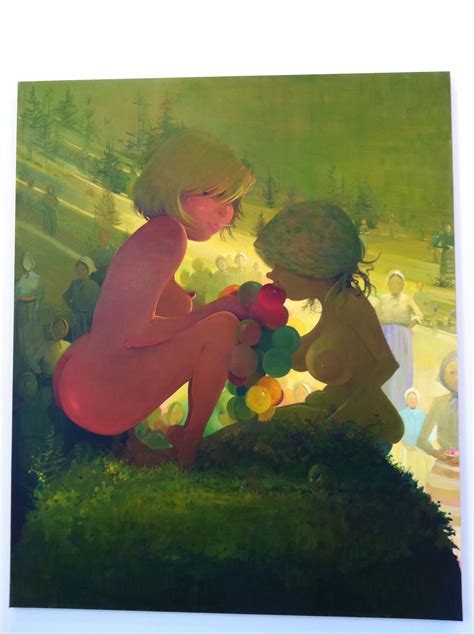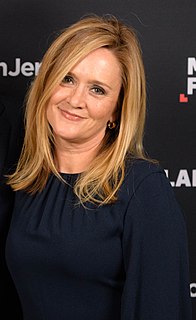Top 1200 Importance Of Reading Quotes & Sayings - Page 11
Explore popular Importance Of Reading quotes.
Last updated on September 30, 2024.
Whoever's reading this, if anyone is reading it: does it matter that our old selves are lost to us as surely as the past is lost, or is it enough to know yes we lived then, and we are living now, and the connection must be there? Like a river hundreds of miles long exists both at its source and at its mouth, simultaneously?
I spent so much of my life reading about spirituality and reading about neuroscience and trying different meditation practices. It's a really big part of my life. But it's sometimes hard to talk about. There are so many people in the world who don't live in Southern California and don't spend their time meditating.
Communications technology changes possibilities for communication, but that doesn't mean it changes the inherited structure of the brain. So you may think that you're addicted to online reading, but as soon as it isn't available anymore, your brain will pretty immediately adjust to other forms of reading. It's a habit like all habits.
Because most of the girls were still in mourning and all of them had lost their textbooks, even pencils and pens, Shaukat Ali began the first classes by reading to them from poetry and religious texts. "Reading, literature, and spirituality are good for the soul," he told them. "So we will start with these studies.
If I had millions and millions and millions of dollars, I'd leave a large portion to the 42nd Street library. That's why - that was my hangout, the reading rooms, the North and South reading rooms. I'd go there, and my God, I couldn't believe I had access to all of these books. That was my university.
Some people have argued that listening to a work of literature does not really promote literacy in the same way that reading does. Having tried this for several months, however, I can report from the trenches that, for me, immersive listening is as intellectually challenging, stimulating, and rewarding as immersive reading.
Unlike most readers in Antiquity who read their books aloud, we have developed the convention of reading silently. This lets us read more widely but often less well, especially when what we are reading-such as the plays of Shakespeare and Holy Scripture-is a body of oral material that has been, almost but not quite accidentally, captured in a book like a fly in amber.
When I was younger, I was diagnosed with dyslexia, which meant, for me, sitting in front of a book was really hard - until I discovered Harry Potter, and this character, this 11-year-old boy, who suddenly gets off to school for the first time, captured my imagination, and suddenly reading was fun. Reading was inspiring, and I was motivated.
I just know from experience that reading a funny poem aloud, especially at the beginning of a public reading, can have a certain effect. Somehow narrowing the spectrum of possible emotional reactions. So while I like it when people laugh at my poems, and I definitely enjoy being funny in them, I don't really think that's the most important thing that's going on, at least not to me.
I still have a struggle reading (dyslexia, fh) and so I don't read much.. ..Probably the only reason I'm painter is because I couldn't read yet I love to write, but when I write I know what I'm writing, but when I'm reading I can't see it, because it goes from all sides of the page at once. But that's very good for printmaking.
The written word, obviously, is very inward, and when we're reading, we're thinking. It's a sort of spiritual, meditative activity. When we're looking at visual objects, I think our eyes are obviously directed outward, so there's not as much reflective time. And it's the reflectiveness and the spiritual inwardness about reading that appeals to me.
Reading has always been my home, my sustenance, my great invincible companion. "Book love," Trollope called it. "It will make your hours pleasant to you as long as you live." Yet of all the many things in which we recognize some universal comfort...reading seems to be the one in which the comfort is most undersung.
I have read so many books. And yet, like most Autodidacts, I am never quite sure of what I have gained from them. There are days when I feel I have been able to grasp all there is know in one single gaze, as if invisible branches suddenly spring out of no where, weaving together all the disparate strands of my reading. And then suddenly the meaning escapes, the essence evaporates and no matter how often I reread the same lines they seem to flee ever further with each subsequent reading and I see myself as some mad old fool who thinks her stomach is full because she's been reading the menu.
In novels you're able to occupy character's internal thoughts and it's really hard to do in a film or a TV show. When you're reading a character's thoughts or when it's in first person, you're reading kind of their own story, so you have the opportunity to see what makes that character complex or complicated. And to me that's what the whole point of fiction is.
Reading honest literature makes you love the world. Knowledge and understanding are love. Reading educates our feelings and enhances our sympathy. When you read for understanding, you are fundamentally changed. You are a different person at the end of the story or the novel than you were when it began.
I was always much impressed, in reading prison memoirs of revolutionists, such as Lenin and Trotsky ... by the amount of reading they did, the languages they studied, the range of their plans for a better social order. (Or rather, for a new social order.) In the Acts of the Apostles there are constant references to the Way and the New Man.
So we start with an oversignifying reader. Those texts that appear to reward this reader for this additional investment - text that we find exceptionally suggestive, apposite, or musical - are usually adjudged to be 'poetic'. ... The work of the poet is to contribute a text that will firstly invite such a reading; and secondly reward such a reading.
I was one those kids who had books on them. Before weddings, Bar Mitzvahs, funerals and anything else where you're actually meant to not be reading, my family would frisk me and take the book away. If they didn't find it by this point in the procedure, I would be sitting over in that corner completely unnoticed just reading my book.
I'll wait to see what the film [The Lobster] is, but it's set in a contemporary world, in America, there are hospitals and diners, parks, things that we will recognize and experienced ourselves but yet there's this similar kind of uneasiness through all the interactions and all the things that take place. It was unnerving reading the script. I kind of felt nauseous after reading it.
With the Black Company series Glen Cook single-handedly changed the face of fantasy—something a lot of people didn’t notice and maybe still don’t. He brought the story down to a human level, dispensing with the cliché archetypes of princes, kings, and evil sorcerers. Reading his stuff was like reading Vietnam War fiction on peyote.
Our singer, Matt, was reading Stephen Hawking and other physics-related books, and I was reading entrepreneurial books, and we all started discussing the new technologies that were taking over the world, from 3-D printing to space travel. These conversations starting leading us to think of how we could portray these things in a musical way.
But I'm getting to a point where I'm trying to stop reading reviews about myself, only because it's a no-win situation. If they say something nice, you get a little ego pump. But people on the Internet are straight-up cruel, and I'm becoming increasingly uncomfortable reading the ridiculous cruelties that people spit out on the Internet.
I had amazing intellectual privilege as a kid. My mom taught me to read when I was two or three. When I was five, I read and wrote well enough to do my nine-year older brother's homework in exchange for chocolate or cigarettes. By the time I was 10, I was reading Orwell, Tolstoy's 'War and Peace,' and the Koran. I was reading comic books, too.
I was one of those kids who had books on them. Before weddings, Bar Mitzvahs, funerals and anything else where you're actually meant to not be reading, my family would frisk me and take the book away. If they didn't find it by this point in the procedure, I would be sitting over in that corner completely unnoticed just reading my book.
Writing, or at least good writing, is an outgrowth of that urge to use language to communicate complex ideas and experiences between people. And that's true whether you're reading Shakespeare or bad vampire fiction-reading is always an act of empathy. It's always an imagining of what it's like to be someone else.
It's pathetic, but I don't really remember my first time reading 'The Great Gatsby.' I must have read it in high school. I'm pretty sure I remember it being assigned, and I generally did the reading. But I don't remember having a reaction to the book, even though I loved literature, and other works made a lasting impression on me at that age.
I think training your instinct comes from writing and reading. There's no big secret. And reading slush helps, as well; I'd recommend everyone edit a literary magazine at some point. It's time-consuming, but there's a lot to learn from other writers who are also learning. The patterns (twelve stories about whales in this batch?) are also interesting.
For a while I got into the South Pacific theater of World War II. I read "American Caesar" by William Manchester, the biography of General MacArthur. Because of that I ended up reading "Tales of the South Pacific" by James Michener and then because of that reading his "Hawaii." That is what happens.
Every child's taste is different. Don't worry if they're not reading 'War and Peace' at age 12. First, build a good foundation and a positive attitude about reading by letting them pick the stories they enjoy. Make friends with a bookseller or librarian. They are a wealth of information on finding books that kids enjoy.

